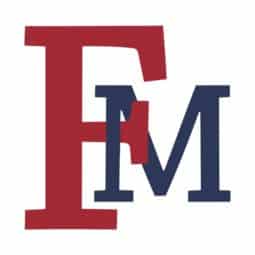B.S. in Visual Arts with K-12 Teacher Certification
School of Education
Competent and caring teachers
It is the mission of the art education program to educate individuals who are highly qualified art educators and who will:
- Be leaders in the field
- Demonstrate competent skills across a range of different media
- Possess a strong knowledge base
- Be effective organizers, managers, and communicators
- Be leaders in scholarship and professional services
To fulfill our mission, we require students to take rigorous courses in education, art education, and studio art. These courses are supplemented by real world learning opportunities, including educational field trips, active participation in national and state art education organizations and conferences, community-based service projects, school internships, and exposure to practicing artists through an active visiting artist program.
The art education program is accredited by the National Association of Schools of Art and Design (NASAD).
Admission to the Art Education Program
A student must make application for admission to the Art Education Program in the Department of Fine Arts upon successful completion of 30 semester hours to include the following:
- Have a cumulative grade point average of at least 2.5* in all undergraduate courses taken at FMU. *
- Freshmen and transfer students entering the institution in the Fall of 2015 or the Spring of 2016 must achieve a cumulative 2.6 grade point average in order to be admitted into the teacher education program.
- Freshmen and transfer students entering the institution in the Fall of 2016 and beyond must achieve a cumulative 2.75 grade point average for admission to the teacher education program.
- Have completed Art Education 312.
- Have completed one beginning level studio course from Art 207, 208, 210, or 230.
- Have completed one foundation art history course from Art History 220 or 221.
- Have at least a 2.75 grade point average in all Art, Art History, and Art Education courses attempted.
- Have passed the Praxis I/Praxis CORE: Reading, Writing, and Math assessment.
- Have positive recommendations from the Art Education faculty.
NOTE: Students must schedule a conference in the School of Education to discuss the Professional Licensure program.
ART EDUCATION PROGRAM (B.S. IN VISUAL ARTS)
General Education (48-49 hours)
- Communications – 9 or 10 hours
- ENGL 101 – Analysis and Argument or ENGL 101E – Analysis and Argument w/ Ext. Studio and ENGL 101L – Extended Studio (3 or 4)
- ENGL 102 – Rhetoric, Genre, and Research (3)
- SPCO 101 – Basics of Oral Communication (3)
- Social Sciences – 9 hours
- ANTH 200 – Introduction to Anthropology or GEOG 101 – Cultural Geography (3)
- POLI 101 – United States Government or POLI 103 – Introduction to Political Science (3)
- Additional three (3) hours selected from economics, geography, political science, sociology, or Honors 250-259
- Humanities – 12 hours
- Literature elective (any language) (3)
- History (elective) (3)
- ARTH 220 – History of Western Art: Ancient – Medieval
- ARTH 221 – History of Western Art: Renaissance – Modern
- Mathematics – 6 hours
- MATH 111 – College Algebra II or MATH 111E – College Algebra II w/ Ext. Studio II and MATH 111L – Extended Studio II, or higher
- Natural Sciences – 12 hours
- Biological Science w/ Lab (4)
- Physical Science w/ Lab (4)
- PSYC 206 – Introductory Psychology
- PSYC 216 – Introductory Psychology Laboratory
Professional Education (34 hours)
- EDUC 190 – Foundations of Education (3) *
- Take concurrently with EDUC 192
- EDUC 192 – Foundations of Curriculum and Instruction (3) *
- * Take concurrently with EDUC 190
- EDUC 311 – Foundations of Instructional Planning and Assessment (3) *
- EDUC 313 – Field Experiences in Instructional Planning and Assessment (2) *
- Select one (1) from the following: (2)
- EDUC 391 – Field Experience B: Early Childhood – Block B
- EDUC 392 – Field Experience: Elementary
- EDUC 393 – Clinical Experience: Secondary
- EDUC 411 – Reading in the Content Areas (3)
- EDUC 420 – Introduction: Exceptional Learner (3)
- Student Teaching Block *
- EDUC 487 – Classroom Management (3)
- EDUC 490 – Directed Teaching (12)
*All Student Teaching Block courses must be taken together.
Teaching Area (51 hours)
- Design/Technology Courses – 12 hours
- ART 203 – Basic Drawing
- ART 204 – Two-Dimensional Design
- ART 205 – Three-Dimensional Design
- ART 206 – Introduction to Graphic Design
- Studio courses – 15 hours
- Select nine (9) hours from the following:
- ART 207 – Introductory Painting
- ART 208 – Introduction to Film Photography
- ART 210 – Introductory Ceramics
- ART 215 – Introduction to Printmaking
- ART 218 – Introduction to Digital Photography
- ART 230 – Graphic Design I (
- ART 231 – Typography
- Select six (6) hours from ART 299 or higher
- Select nine (9) hours from the following:
- Art Education courses
- ARTE 312 – Curriculum Materials and Methods in Art Education
- ARTE 415 – Historical Foundations of Art Education
- ARTE 416 – Contemporary Issues in Art Education
- ARTE 501 – The School Art Program
Course Descriptions
-

PSYC 206 - Introductory Psychology
Prerequisites/Corequisites:
Credit Hours: Min: 3; Max:Description: Survey of the biological, experimental (including sensory processes, learning, memory, and motivation),...
-

PSYC 216 - Introductory Psychology Laboratory
Prerequisites/Corequisites: Take PSYC-206. (Required, Previous or concurrent).
Credit Hours: Min: 1; Max:Description: The main focus will include hands-on...
-

SPCO 101 - Basics of Oral Communication
Prerequisites/Corequisites:
Credit Hours: Min: 3; Max:Description: Fundamental principles of oral communication: delivery, audience analysis, and holding listener...
Courses Found: 48